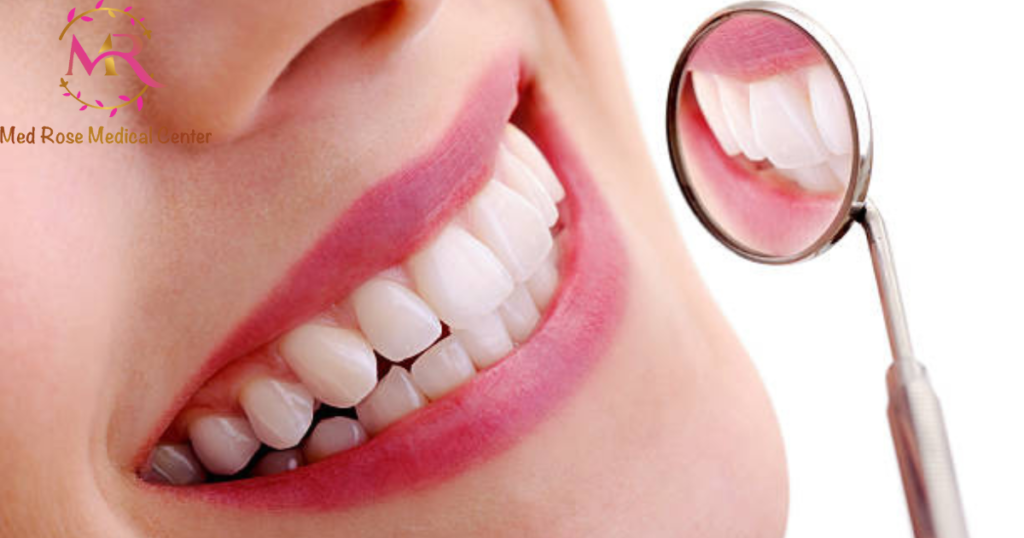Oral hygiene is about keeping the mouth clean and preventing disease. Good oral hygiene includes brushing and cleaning, as well as visiting dentists regularly for x-rays, examinations, and cleaning.
Why is oral hygiene important?
Oral hygiene is preventive care. In other words, proper care of teeth and gums can prevent dental health problems such as cavities, periodontal diseases, and bad breath. Good oral health also leads to good general health. For example, an infection in the mouth may allow the bloodstream to carry bacteria to other parts of the body and lead to other health problems, such as heart disease and stroke. Keeping your teeth and gums healthy is an important part of your overall health.7 Rules for Maintaining Oral Hygiene
Rule 1: Brush your teeth regularly
Brushing your teeth every day is very important. Failure to brush your teeth can cause various dental health problems, including cavities, gingivitis, plaque and tartar buildup, and tooth loss. Use toothpaste with fluoride.Rule 2: Floss
Use floss before brushing your teeth. A toothbrush can remove tartar that cannot be reached.Rule 3: Regular dental visits
At regular dental visits, dentists clean, apply fluoride, and take x-rays to talk about current dental health. It is recommended to see a dentist regularly.Rule 4: Choose a mouthwash that suits your mouth health
After each brushing, use the famous mouthwash. This will allow you to further clean and strengthen your teeth. Be sure to choose something that is effective in preventing cavities!Rule 5: Keep your teeth from chipping
Don’t use your teeth except for chewing food. If you use your teeth to break nuts, uncover bottles, or break packaging, you risk chipping or breaking your teeth.Rule 6: Refrain from acidic drinks
Avoid acidic drinks such as soft drinks, cordials, and fruit juices. The acid softens the material of the teeth, melts the mineral of the enamel, and causes cavities.Rule 7: Sugar-free gum
Use sugar-free gum Chew sugar-free gum during brushing after meals. This helps to remove plaque and is beneficial to the health of the mouth. Between brushing and eating, chew a sugarless gum. This helps to remove plaque and is beneficial to the health of the mouth.Know the right food for healthy teeth
Here are some tips from the team at Snodgrass-King to keep your teeth healthy for life!- Eat acidic foods and sugary foods as part of your diet, rather than eating them alone.
- Contrary to popular belief, brushing immediately after eating acidic food can speed up tooth wear.
- Refrain from eating sweet or sour foods.
- Use toothpaste with fluoride to repair enamel and reduce cavities and pyorrhea.
- When drinking coffee, wine, or soda, use a straw.
- Drink plenty of water and use oral rehydration solution or mouthwash to keep the oral cavity moist.
- Ice can be used to cool drinks, but don’t chew. Instead, a chilled, ice-free drink is a good choice.
- Water and coconut water are healthy alternatives to drinks that are high in sugar and acidic by-products.
- Use floss every night to remove food and plaque stuck between your teeth.
- Finally, you can avoid these foods, especially in the summer, by adhering to your daily routine.
Conclusion
Good oral hygiene is important for healthy teeth and gums. It is important to brush at least twice a day for two or more minutes, use floss once a day, and rinse the bacteria with mouthwash. In addition, balanced eating, avoiding smoking, and visiting the Medrose Medical Center regularly are important. By following these tips, you can keep your teeth and gums healthy and strong.Doctor of Medicine, Constantine University, Algeria
Diploma in Dermatology, Plymouth University, UK
Certified from the American Academy for Anti-Ageing and Aesthetic Medicine:
Lasers, Advanced Injectables, Threads ,Chemical Peeling

